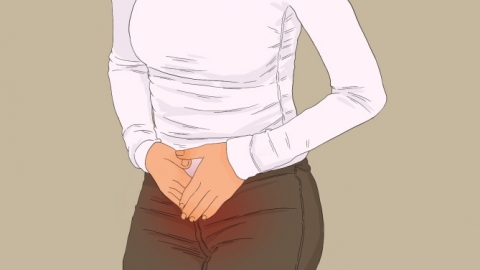Why do I always feel itchy in the uterus and lower abdomen?
Feeling persistent itching in the uterine and lower abdominal area may be caused by clothing irritation, improper hygiene, vulvitis, vaginitis, pelvic inflammatory disease, etc. Symptoms can be improved by changing clothes, enhancing cleanliness, or medication. If itching worsens or is accompanied by abnormal discharge or pain, prompt medical attention is necessary.
1. Clothing Irritation: Wearing tight, non-breathable synthetic fiber clothing can cause friction and irritation to the skin of the lower abdomen and external genitalia, leading to localized itching. It is recommended to switch to loose, breathable cotton clothing and avoid tight garments that compress or rub against the area.
2. Improper Hygiene: Inadequate or excessive cleaning in daily routines can disrupt the natural balance of local flora and trigger itching. Gently clean the external genital area with warm water, avoid using irritating cleansers, and maintain dryness and cleanliness.

3. Vulvitis: Inflammation of the vulva caused by bacterial or fungal infections leads to itching in the lower abdomen and external genitalia, often accompanied by redness, swelling, and increased discharge. Under medical guidance, patients may use medications such as potassium permanganate solution, metronidazole gel, or clotrimazole cream to relieve symptoms.
4. Vaginitis: Imbalance of vaginal flora or pathogen infection results in inflammatory secretions that irritate the external genitalia and lower abdomen, causing itching along with foul-smelling or altered vaginal discharge. It is advisable to use medications such as metronidazole suppositories, clotrimazole suppositories, or gynecological washes under medical supervision to alleviate discomfort.
5. Pelvic Inflammatory Disease (PID): Bacterial infection causing inflammation in the pelvic cavity can stimulate the endometrium and surrounding tissues, resulting in a sensation of heaviness and itching in the lower abdomen, often accompanied by backache and abnormal discharge. Patients may follow medical advice to take medications such as cefixime dispersible tablets, levofloxacin hydrochloride capsules, or Gynecological Qianjin tablets to improve symptoms.
In daily life, maintain cleanliness and dryness of the external genital area, change cotton underwear frequently, eat a light diet avoiding spicy and irritating foods, get adequate rest to prevent fatigue, and maintain regular作息 to support overall health.




